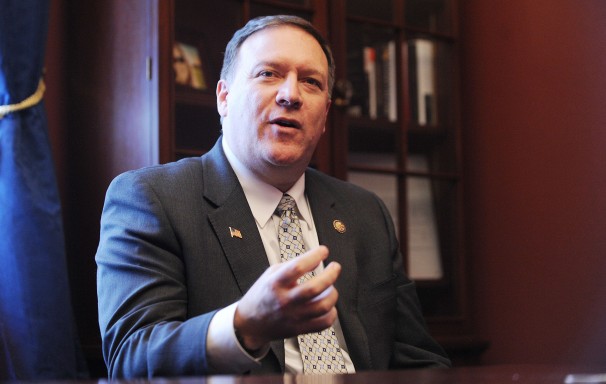There have been at least a dozen attacks by Muslim terrorists on U.S. soil since Ramzi Yousef’s parked rental van exploded in the basement of the World Trade Center on February 26, 1993. Some have caused death and injury—such as the 9/11 attacks, Nidal Hasan’s mass shooting at Fort Hood, Texas in 2009, and the Boston Marathon bombings. Other attacks—such as Faisal Shahzad’s fizzled Times Square bombing or Umar Farouk Abdulmutallab’s unsuccessful underwear bombing of a flight—were thwarted or aborted.
Videos by Rare
Yet fatal or not, all of these attacks were successful in some respects. They scared Americans and reduced freedom in the most freedom-loving nation on earth. They slowed our economy. They demonstrated that our open society is vulnerable. They were, in former Attorney General Michael Mukasey’s words, “crimes that are nonetheless meant to send a terrorist message.”
When the most devastating terrorist attacks on America in the last 20 years come overwhelmingly from people of a single faith, and are performed in the name of that faith, a special obligation falls on that faith’s leaders to respond.
Instead, their silence has made most Islamic leaders across America complicit in these acts, and, more importantly, in those that are sure to follow. If a few imams have condemned the Boston murders, the reporting on them has been minimal. What is required is every single Muslim leader to join in that call. If a religion claims to be one of peace, its leaders must reject violence perpetrated in its name. Some clerics today suggest that jihad today is non-violent and is only about making oneself a better Muslim. Perhaps that’s true for moderate Muslims, but extremists seek to revive the era when most Islamic clerics understood jihad to be holy war.
Decades of Middle Eastern oil money have propounded this more extreme, violent interpretation in mosques around the world. Less than two months after the 9/11 atrocities, Yusuf al-Qaradawi, an Egyptian Muslim Brotherhood preacher who is probably the most influential Sunni cleric today, declared suicide bombing to be legitimate. “These are heroic commando and martyrdom attacks and should not be called suicide,” he said. As recently as this January, an ambassador from our ally Turkey said, “Al-Qaeda is very different from terror.” I want to believe that Islam is a peaceful religion, but silence in the face of violence undermines the idea.
Worse than silence, American Imam Ahmad Wais Afzali told Najibullah Zazi, the attempted New York City Subway bomber, that the authorities were asking about him and showing his photo around. Thus alerted, Zazi fled New York. Fortunately, he left enough evidence of his handiwork behind to convict him.
What must Islamic leaders say? First, that there is never any justification for terrorism. No political goal legitimizes terrorism. It is never excusable as “resistance.” Then they must state unequivocally that the terrorists’ actions—killing and maiming—sully Islam and they must publicly and repeatedly denounce radical clerics who seek to justify terrorism. There is a battle of interpretation within Islam. It is not enough to deny responsibility by saying one’s own interpretation doesn’t support terrorism. Moderate imams must strive to ensure that no Muslim finds solace for terrorism in the Koran. They must cite the Koran as evidence that the murder of innocents is not permitted by good, believing Muslims and immediately refute claims by these murderers to the contrary. They must say that there is no room for militant Islamism in the religion of peace.
These statements must be made publicly, frequently and in mosques. That’s right—in the mosques and the madrassas. Every single imam must go into his own mosque and denounce these acts in that mosque’s native language, with unmistakable clarity and forcefulness. You have to call evil by its name in order to stamp it out. Downplaying atrocities and rampages just ensures more of them. Every Muslim leader must unequivocally proclaim that terror committed in the name of Islam violates the core tenets of the Prophet Mohammed. And they must do so repeatedly. Period.
My own faith has occasionally been hijacked in the name of violence and cruelty, including in Kansas by Fred Phelps and his Westboro Baptist Church. In response, hundreds of protestant pastors have preached that Mr. Phelps’ actions violate fundamental Christian traditions and have denounced his evil acts. Pope John Paul II prominently apologized in 2000 for the Catholic Church’s perceived failure to do more to speak out against the evils of Nazism and the Holocaust. Likewise, Mormon Church leaders apologized in 2007 for the Mountain Meadows Massacre 150 years ago. Just as these religious leaders have called out those who have killed and acted brutally in the name of their faiths, so too Muslim religious leaders must refute terrorist theology and conspicuously condemn those who kill or brutalize in the name of Islam.
We are now 20 years into Islamic radicals attacking Americans on U.S. soil. I know that not every Muslim supports these actions. Dr. Zuhdi Jasser at the American Islamic Forum for Democracy has spoken out against militant Islamism as has Zainab al-Suwaij of the American Islamic Congress. But the silence in the face of extremism coming from the best-funded Islamic advocacy organizations and many mosques across America is deafening. It casts doubt upon the commitment to peace by adherents of the Muslim faith. This is utterly unacceptable, and it must end.
Rep. Mike Pompeo is a Kansas Republican and a member of the House Permanent Select Committee on Intelligence. He graduated from West Point in 1986.



